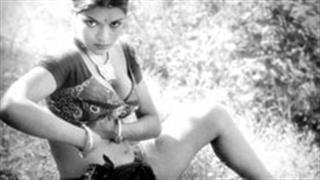The 36th International Film Festival of India (IFFI) has a fair sprinkling of high quality international cinematic works on offer for those looking for more than just an outing on
the Mandovi riverfront in Goa.
Most of these entries are films by directors who are barely known in this part of the world, weaned as moviegoers here are many run-of-the-mill entertainers from either
Bollywood or Hollywood.
Prominent among the films to watch in the Cinema of the World section of the ongoing festival is Chilean director Miguel Littin's "La Ultima Luna" ("The Last Moon"), set on
the West Bank in the early years of the last century.
Littin, who also happens to be the five-member IFFI competition jury chairman this year, is widely regarded as one of the finest filmmakers ever to come out of Latin
America.
Littin's grandparents belonged to Palestine and much of the celebrated filmmaker's recent work has been dominated by an attempt to understand his roots and articulate the
Palestinian predicament in the West Asia conflict.
"La Ultima Luna" tells the story of two young men living in Palestine in the 1910s before World War II. It is a worthy follow-up to Littin's critically acclaimed documentary,
"The Palestine Chronicle", which he shot in the very region from where his forefathers migrated to Chile nearly 100 years ago.
Despite being a period film set in a specific milieu, "La Ultima Luna" is informed with a universal feel and a sense of humanism that helps it transcend the limitations of
political cinema.
Also high up on the list of popularity is Jean-Pierre and Luc Dardenne's "L'enfant" ("The Child"), a French-language film from Belgium. The film, which won the coveted Palme
d'Or at the Cannes film festival earlier this year, is a quiet little story that stands out for its warm humanism.
"L'enfant" revolves around a young couple - 20-year-old Bruno and 18-year-old Sonia - who survive on the streets of the city off the latter's benefit and the spoils from the
former's petty crimes. Sonia gives birth to a child and Bruno is faced with an existential question -can he rid himself of his carefree ways and shoulder the responsibility of
fatherhood?
The Dardenne brothers squeeze an emotionally affecting and intellectually convincing drama out of this simple vignette of life on the fringes of urban existence. "L'enfant"
screens at the 36th IFFI as part of the focus on contemporary French-language cinema.
Yet another Cannes winner, Austrian filmmaker Michael Haneke's politically loaded thriller, "Cache" ("Hidden"), pushes the theme of racism in contemporary French society
further than any other mainstream film has done in recent years. But it does so with a remarkable degree of subtlety.
Bolstered by first-rate performances by lead actors Juliette Binoche and Daniel Autieul, "Cache" is about a media executive who is pushed to the edge by the realisation that
somebody out there is keeping a watch on every movement of his, a fact proven repeatedly by the arrival of clandestinely shot tapes of his house and its environs.
Haneke's French production captures the post-9/11 urban fear psychosis with eerie precision. The filmmaker won the best director prize in Cannes.
Also in the IFFI line-up this year is "Manderlay", the second instalment of Danish director Lars von Trier's intended anti-US trilogy that began in 2003 with the outstanding
"Dogville".
Employing the minimalist style that marked "Dogville", Manderlay enters the heart of a remote plantation where slavery is alive and kicking many decades after its declared
abolition. Von Trier peels off a layer of the "American truth" to reveal an ugly picture of human decadence.
IFFI has many riches on offer from overseas
Saturday, November 26, 2005 10:49 IST



















